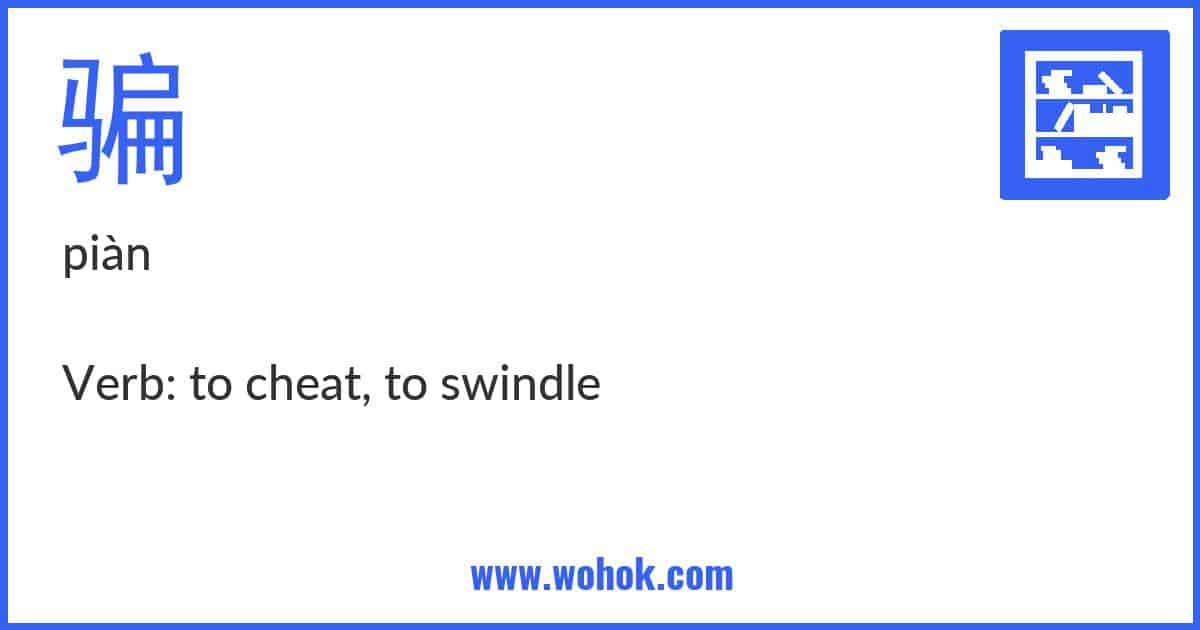The Chinese word 骗 means “to deceive” or “to cheat”. It is commonly used in everyday language to describe situations where someone has tricked or misled another person for personal gain. For example, if someone sells a fake product to a customer, they could be described as 骗人 or “deceiving people”. The word can also be used in a more lighthearted way, such as when someone plays a harmless prank on their friend.
Translation
Verb: to cheat, to swindle
Pronunciation
Example Sentences
| Chinese | Pinyin | Engish |
|---|---|---|
| 他用假身份证骗了银行的贷款 | tā yòng jiǎ shēnfèn zhèng piànle yínháng de dàikuǎn | He used a fake ID to scam a loan from the bank |
| 这个电话是个骗局,不要相信 | zhège diànhuà shì gè piànjú, bùyào xiāngxìn | This phone call is a scam, don’t believe it |
| 我被他骗了一百块钱 | wǒ bèi tā piànle yìbǎi kuài qián | He cheated me out of 100 yuan |
| 她骗了我说她会弹钢琴 | tā piànle wǒ shuō tā huì tán gāngqín | She tricked me into believing she could play the piano |
| 这个广告是个骗局,不要上当 | zhège guǎnggào shì gè piànjú, bùyào shàngdàng | This advertisement is a scam, don’t fall for it |
| 他骗了我说他会说中文 | tā piànle wǒ shuō tā huì shuō zhōngwén | He lied to me and said he could speak Chinese |
| 这个人是个骗子,不要相信他 | zhège rén shì gè piànzi, bùyào xiāngxìn tā | This person is a fraud, don’t trust him |
HSK
骗 is part of HSK Level 4 in HSK 2.0. In the newer HSK 3.0 it is part of HSK Level 5.
Learning Card


